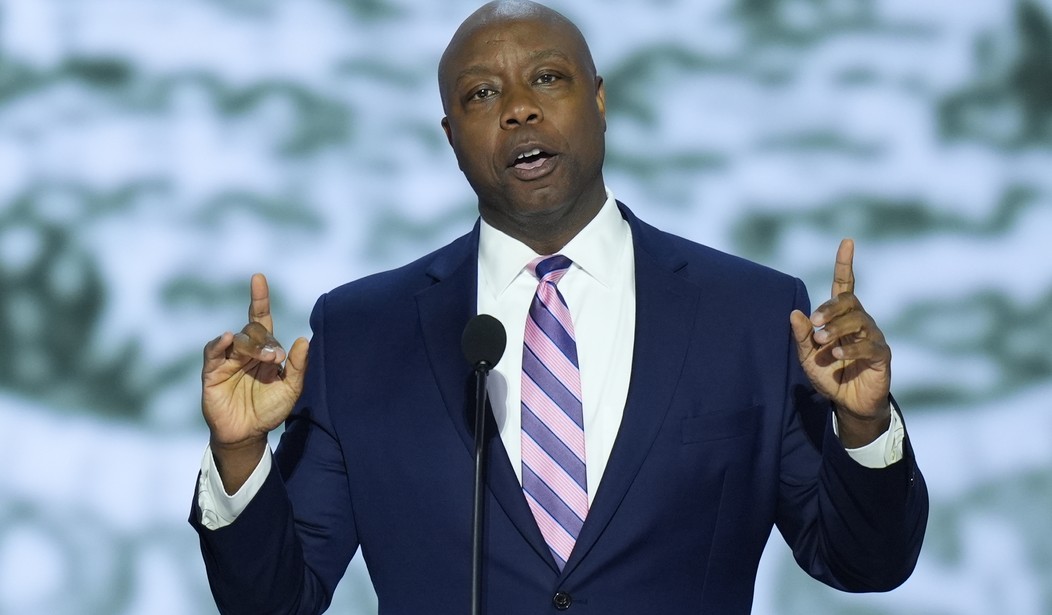"Debanking": the cutting off of a person or business from their financial institutions because of allegations of suspicious activity.
Having worked in financial services, I've sat through the training showing employees all the warning signs of potential money-laundering and fraud - large cash transactions, flurries of small cash transactions, and on and on.
But the idea dissenting, or conservative, beliefs were a "warning sign" outside totalitarian banana republics is kind of new. The concept was introduced to North Americans three years ago, when Canada started debanking dissident individuals and groups during the protests against Canada's eternal Covid restrictions, seeming to adopt the Orwellian motto "Free Speech equals Terrorism":
Deputy Prime Minister Chrystia Freeland said at Monday's news conference that banks would be able freeze personal accounts of anyone linked with the protests without any need for a court order.
Vehicle insurance of anyone involved with the demonstrations can also be suspended, she added.
Ms Freeland said they were broadening Canada's "Terrorist Financing" rules to cover cryptocurrencies and crowdfunding platforms, as part of the effort.
Well, it's not just 2022, and it's not just Canada anymore: it's spread to the USA.
Adam Sorrell, an Alabama gun store owner who happens to sideline as Alabama's state auditor is telling his story of being "debanked" - having his and his business's financial knees cut out from underneath:
"When I was initially debanked, I didn't realize I was getting debanked," Alabama Republican State Auditor Andrew Sorrell told Fox News Digital at the State Financial Officers Foundation conference in Orlando, Florida.
"What happened was I just get a letter one day from our credit card company, from my gun store, Gold Guns and Guitars, and we get this curious letter in the mail, and it says that in 30 days, we're closing your account. And it didn't tell us why at all."
Sorrell, 39, explained that at first he thought that his company had simply forgotten to pay their bills, but when he realized he was up-to-date, he switched credit card companies and did not think anything of it until he got another letter from his credit card processor notifying him he was being dropped.
Sorrell notes that there is a law enforcement and corruption angle to the rules - but that they can be and are being abused:
"I actually have some sympathy for these large banks, and I think passing debanking legislation at the state level might actually help some of these large banks, because they can go back, and they can say, I'm sorry, Alabama has now passed debanking legislation. We're just following the law, we don't wanna debank people anymore," Sorrell said.
"This is un-American, and it has to be stopped."
States like Alabama, Georgia, Florida and Tennessee are gradually taking up the issue:
With legislation to tackle debanking stalling under the Biden administration, other states have already got in on the act. Florida first enacted its fair access law in May 2023, establishing new “unsafe and unsound practice” standards for financial institutions operating within the state. Under these provisions, institutions are prohibited from denying, cancelling, suspending or terminating services based on a customer’s political opinions, speech or affiliations; a customer’s religious beliefs, religious exercise or religious affiliations; any factor that is not a quantitative, impartial, and risk-based standard, including a customer’s business sector; or any rating, scoring, analysis, tabulation, or action that considers a social credit score based on specified factors.
Which is a good start, but will lead to a perverse red-blue divide on this issue, as so many issues: New York has long tried (and, thankfully, failed) to use debanking to affect gun rights policy.
The issue is getting belated attention at the national level:
Senate Banking Committee Chairman Tim Scott, R-S.C., introduced a bill known as the Financial Integrity and Regulation Management (FIRM) Act, which would eliminate references to reputational risk as a measure used to determine the safety and soundness of a financial institution.
The legislation would also eliminate federal banking agencies' ability to move forward with new rules or guidance using reputational risk to regulate financial institutions, and require those agencies to report to Congress about their elimination of reputational risk in bank oversight.
"It's clear that federal regulators have abused reputational risk by carrying out a political agenda against federally legal businesses," Scott said. "This legislation, which eliminates references to reputational risk in regulatory supervision, is the first step once and for all."
Financial oversight laws have provided a convenient backdoor to attackign the First, Second and 14th Amendments for long enough.








